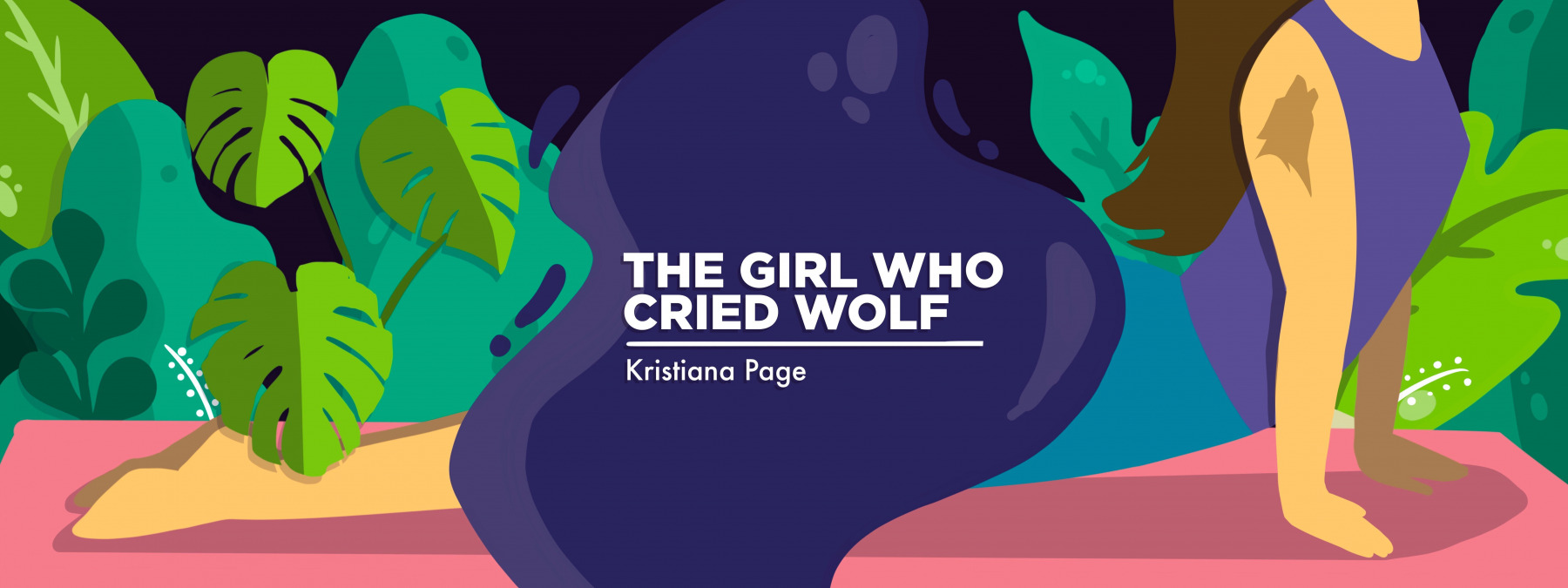Love Triangle, Part 1: The Complex Relationship Among Lupus, Love, and Me
How a difficult breakup affected columnist Kristiana Page's health

First in a three-part series.
Lupus, love, and I have always shared a complicated relationship, as my diagnosis came not long after my first real breakup.
In the chaos of having my heart broken, I poured every ounce of my strength into putting on a brave face for the world. But behind closed doors, I was struggling to let go of the “forever” I’d envisioned, struggling to deal with the tidal wave of feelings, struggling to keep myself from falling apart.
At 20 years old, I’d regained a nighttime fear of the dark. To be precise, it wasn’t the darkness that scared me, but the deafening silence that it held. You know that period between turning off the lights and falling asleep? I did everything possible to skip that part of my sleep ritual. Those seconds, minutes, or hours can be the perfect time to think, but the last thing I wanted was to be alone with my thoughts.
I wanted to escape the hurt and heartache. I didn’t want time to think, feel, or dwell. And I had the answer: All I had to do was exhaust myself to the point where I fell asleep as soon as my head hit the pillow. In my mind, it was the perfect plan.
Except that it wasn’t.
No one told me how dangerous stress can be for the body. Sure, I’d heard of burnout, but mostly in the context of middle-aged men in suits with high-paying jobs. People in their early 20s didn’t burn out, right? Wrong!
I had taken my “perfect” plan and implemented it to the nth degree. Every day was filled to the brim. Between studying full time at my university, working part time as a barista at a coffee shop, and playing netball, free time was scarce. Any time I did have left over, I filled with people, and if I couldn’t manage that, I swam laps at a nearby pool.
As I write this, I’m cringing. It should’ve been obvious that it was dangerous to pursue that level of exhaustion. But I wasn’t in my right mind; I was too heartbroken and hurt to care that my body was begging me to slow down.
It wasn’t long before I had recurring migraines and auras that began to affect my vision. I’d started getting them in high school, always for the same reason: lack of sleep.
I now know that auras are my body’s way of asking me to rest. When my vision starts to blur after a couple of nights with minimal sleep, it’s a warning sign. This is my single, fleeting opportunity to acknowledge my fault and take responsibility to right my wrong. And that means taking a step back and giving my incredible body the rest it deserves.
But back in 2016, I didn’t know any better. My need to avoid vacant time was greater than my self-awareness. When I came to that fork, two roads lay ahead of me. To the left was a sign that read, “Back on the right track.” Despite the reassuring title, the terrain was treacherous, enshrouded in scrub. To my right, the road was level, clear, and straightforward as far as the eye could see. I couldn’t quite make out what the sign said, but it appeared to be the easier choice.
When you’re struggling, it’s so easy to forget about the bigger picture. When it feels like there’s a gaping hole in your chest, you just want to plug it by whatever means necessary. You don’t think about the consequences if there’s the slightest chance of relief.
I’d taken the “easy” road in the interest of a quick fix. It’s crazy to think that I consciously chose exhaustion as a coping strategy, but I did. I chose to hurt my body, hoping it would provide my brain and heart some respite.
On the corner of Heartbreak Lane and Desperation Avenue is where I began my next big chapter. I found myself weak, facing an unexpected foe. Lupus hadn’t snuck up on me suddenly; it had been following me for a while. But by the time I realized I was in trouble, there was no easy way out.
After falling out of a relationship in 2016, I wanted something lasting. I should’ve been more careful about what I wished for, as a chronic illness wasn’t exactly the enduring commitment I’d envisioned.
And so began the most complex affair of my life — a constant struggle to find balance among myself, lupus, and love.
Next week, I will discuss coming to terms with dating after my lupus diagnosis. At the time, I felt undeserving of love because of my chronic illness and believed I needed to make disclaimers early on in my relationships. Stay tuned for Part 2!
Note: Lupus News Today is strictly a news and information website about the disease. It does not provide medical advice, diagnosis, or treatment. This content is not intended to be a substitute for professional medical advice, diagnosis, or treatment. Always seek the advice of your physician or other qualified health provider with any questions you may have regarding a medical condition. Never disregard professional medical advice or delay in seeking it because of something you have read on this website. The opinions expressed in this column are not those of Lupus News Today or its parent company, Bionews, and are intended to spark discussion about issues pertaining to lupus.







Leave a comment
Fill in the required fields to post. Your email address will not be published.